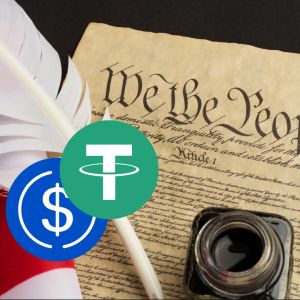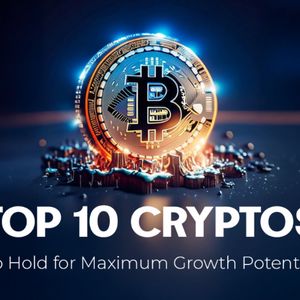Korean exchanges are experiencing a heightened interest in XRP, as many traders are shifting their investments from ETH to XRP and BTC following XRP's drop below $2—a development we’ll examine further below. PlutoChain ($PLUTO) could also attract attention with its innovative hybrid Layer-2 solution aimed at tackling Bitcoin’s major issues, such as sluggish transactions, steep fees, and limited real-world applications. Let's dive into the details of both projects below. XRP Price Forecast: Could Korean Investors Ignite a 10x Rise in XRP Value? XRP is currently valued at $2.41, marking a 3.7% decrease in the last 24 hours. Despite the drop, trading volume remains robust at $4.1 billion. A significant driver in this recovery has been the strong buying activity from traders on Korean exchanges , particularly Upbit and Bybit. Many investors have been moving their assets from Ethereum (ETH) to XRP and Bitcoin (BTC). Simultaneously, large holders, or whales, are transferring significant quantities of XRP to exchanges like Binance. Over 180 million XRP were traded in 15,000 transactions, marking the highest activity level since early January. Despite the market volatility, some analysts hold a positive outlook for XRP’s future. For example, Armando Pantoja , a well-known crypto analyst, believes XRP could climb to between $8 and $25 during the 2025 crypto bull market. PlutoChain ($PLUTO): A Hybrid Layer-2 Solution That Could Revolutionize Bitcoin as a Payment Network Bitcoin, while famous, faces challenges like slow transaction speeds, high costs, and limited flexibility, making it unsuitable for everyday transactions. Businesses struggle with accepting BTC due to delays, high processing fees, and a lack of refund options, which hinders its practical use. PlutoChain ($PLUTO) offers a potential solution. With its hybrid Layer-2 scaling technology, it aims to boost Bitcoin’s transaction speed, reduce fees, and enhance its utility. Departing from Bitcoin’s 10-minute block times, PlutoChain offers block times of just 2 seconds on its platform, facilitating instantaneous payments and microtransactions. A major advantage is cost efficiency. While high fees make Bitcoin unsuitable for minor transactions, PlutoChain reduces expenses, potentially making BTC more viable for both businesses and consumers. Beyond transactions, PlutoChain enhances Bitcoin’s capabilities. With Ethereum Virtual Machine (EVM) compatibility , it could integrate BTC into DeFi platforms, NFT markets, and AI-driven blockchain apps. For optimum security, PlutoChain has undergone audits by SolidProof , QuillAudits , and Assure DeFi . It also conducts regular stress tests and code reviews to enhance its resistance to vulnerabilities. Scalability stands as another significant benefit. During testing, PlutoChain handled over 43,200 transactions in a single day, demonstrating its ability to meet high demand without slowdowns. While Bitcoin's governance is primarily managed by miners and developers, PlutoChain introduces a community-focused model where users can propose and vote on updates. Concluding Thoughts As Korean exchanges apply significant buying pressure on XRP and analysts predict possible 10x returns, a transformation appears to be unfolding in the Bitcoin ecosystem. PlutoChain ($PLUTO) seems poised to address Bitcoin’s most pressing challenges with a Layer-2 solution that enhances transaction speed, lowers costs, and boosts functionality. With block times reduced to just 2 seconds, decreased fees, and support for smart contracts, it could pave the way for Bitcoin to become a viable payment option for everyday transactions.



















